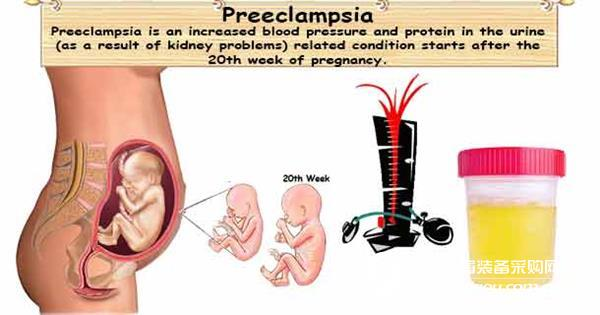Guide
A scientific article published online in Science on June 29 demonstrated a new hormone associated with pre-eclampsia or pregnancy-induced hypertension in pregnant mice. Supplementation with this hormone eliminates symptoms, and the study suggests the possibility of detection and treatment for pre-eclampsia, which is unexplained.

Pregnancy-induced hypertension is not induced by hypertension
Preeclampsia, the authoritative textbook called "pre-eclampsia", sounds complicated; if you say pregnancy-induced hypertension, you must know what it is. For this obstetric idiopathic disease, it translated "pregnancy-induced hypertension" in the early years, and later it was translated into pre-eclampsia. Under the initiative of Dr. Duan Tao, Dean of Shanghai First Maternal and Infant Health Hospital and other obstetric experts, he was changed to “pre-eclampsiaâ€.
The incidence of pre-eclampsia is about 3 to 5%, which is not uncommon and is an idiopathic disease of pregnancy. Because it is characterized by high blood pressure in pregnancy, eating melons can easily think that patients are stimulated during pregnancy due to their own risk factors for hypertension. In fact, the cause of preeclampsia has been unknown. There are many high-risk factors: older age, too young age, family history of pre-eclampsia, overweight, diabetes, chronic nephritis, high blood pressure, etc. Dr. Duan Tao summed up in his micro-signals: old, small, and sick.

Knockout hormone ELABELA gene in mice causes pregnancy-induced hypertension
Researchers from Singapore, the Netherlands and Turkey have worked together to prove a new hormone associated with pre-eclampsia in pregnant mice. This article was published online on June 29th in Science. In the article, the research team described how they studied the hormone ELABELA in pregnant mice and hoped that their findings could be used in preeclampsia treatment in humans.
ELABELA is an endogenous ligand for Apelin receptor, and Apelin is a ligand for APJ. APJ is a G-protein coupled receptor that is expressed on various organ cells in the body, including the central nervous system and the cardiovascular system. In this new study, the researchers reported their study of the hormone ELABELA in mammals and fish, which they found to be present in the blood of placenta and pregnant mice.
After wondering what would happen if hormones were not present during pregnancy, they genetically engineered some of the experimental mice to knock out their Elabela gene but retain Apelin. Then observe what happened when they were pregnant. Studies have shown that hormone deficiency leads to common vascular abnormalities in preeclampsia symptoms in the embryo and placenta. This allowed the research team to further analyze exactly what happened: RNA analysis of the placenta lacking this hormone showed gene expression profiles under hypoxic conditions. This is part of a common symptom in patients with preeclampsia during the construction of blood vessels. The team also tested genetically knockout pregnant mice and found that their urine contained abnormal proteins and elevated blood pressure levels. In addition, their pups are underweight and these are all symptoms of pre-eclampsia.
Supplementing the hormone can eliminate the symptoms of pregnancy-induced hypertension
Their findings were encouraging, and the team injected the hormones into the test mice, supplemented the lack of substances and found that their preeclampsia symptoms disappeared almost immediately. It is unclear whether the lack of this hormone will also cause pre-eclampsia in humans, but the team hopes to find evidence. ELABELA is abundant in human placenta and promotes the invasion of trophoblast cells, suggesting that it promotes placental development to prevent pre-eclampsia. If the lack of ELABELA can indeed cause preeclampsia in humans, its findings provide a means of detecting predisposition in pregnant women and may eliminate the symptoms.
Shanghai Chuangsai Technology has excellent performance, interleukin cytokines, fetal bovine serum, electrophoresis equipment scientific instruments, raw material drug standards, chemical reagents, cell culture consumables, Shanghai Chuangsai, mass products special promotions, welcome to inquire!
Auto Harness,Auto Wire Harness,Automotive Wire Harness,Adjustable Auto Harness
Ruian Jia Beir Auto Parts Co.,Ltd. , https://www.jbrseat.com